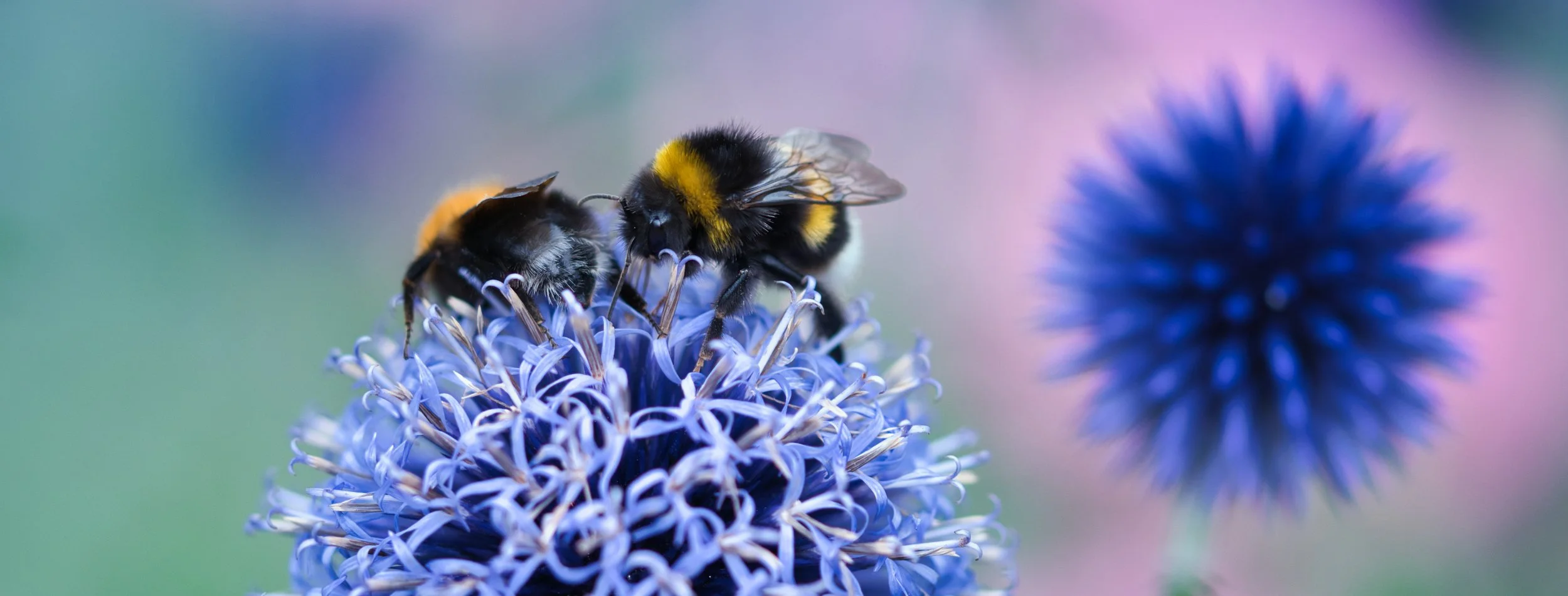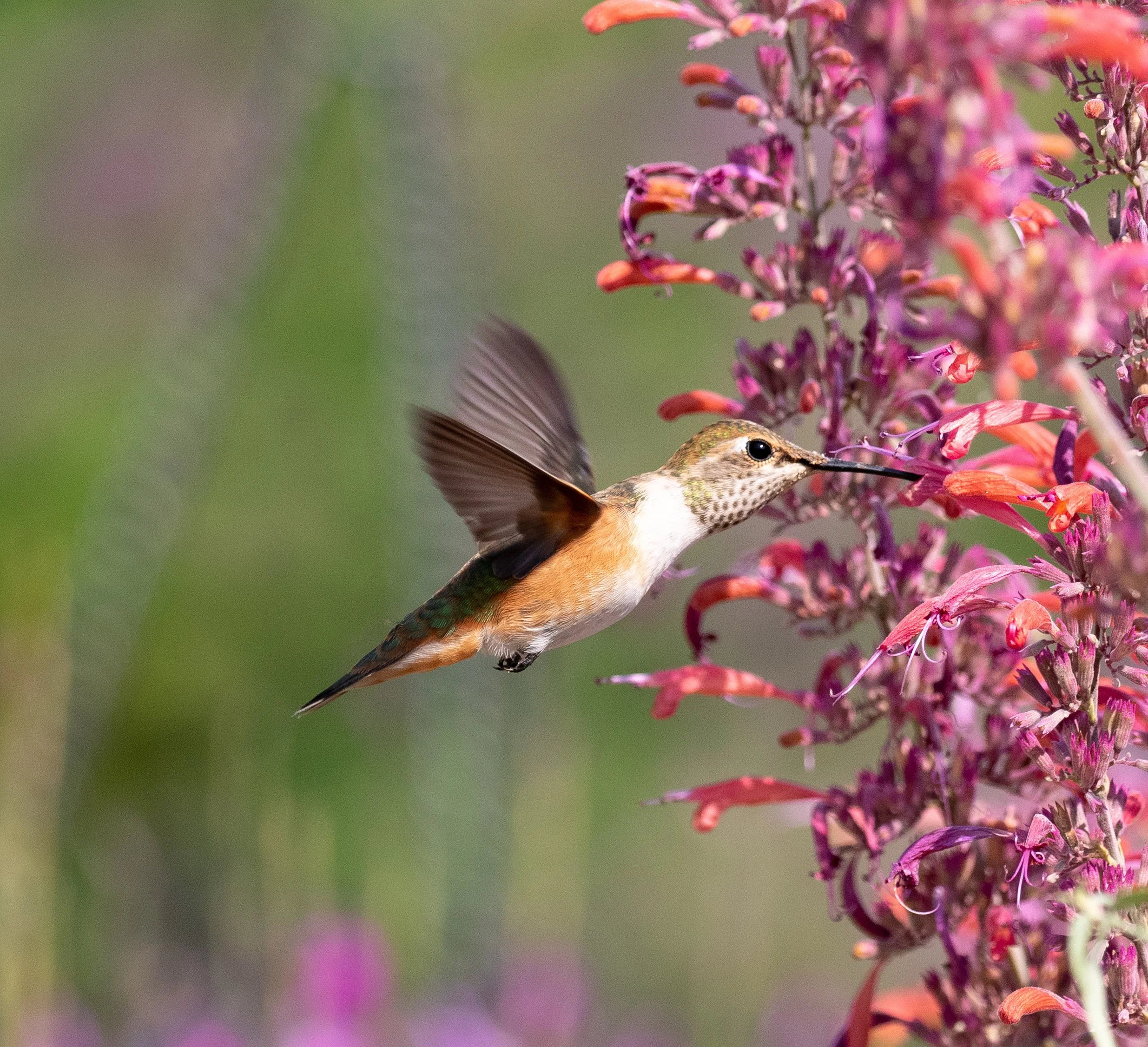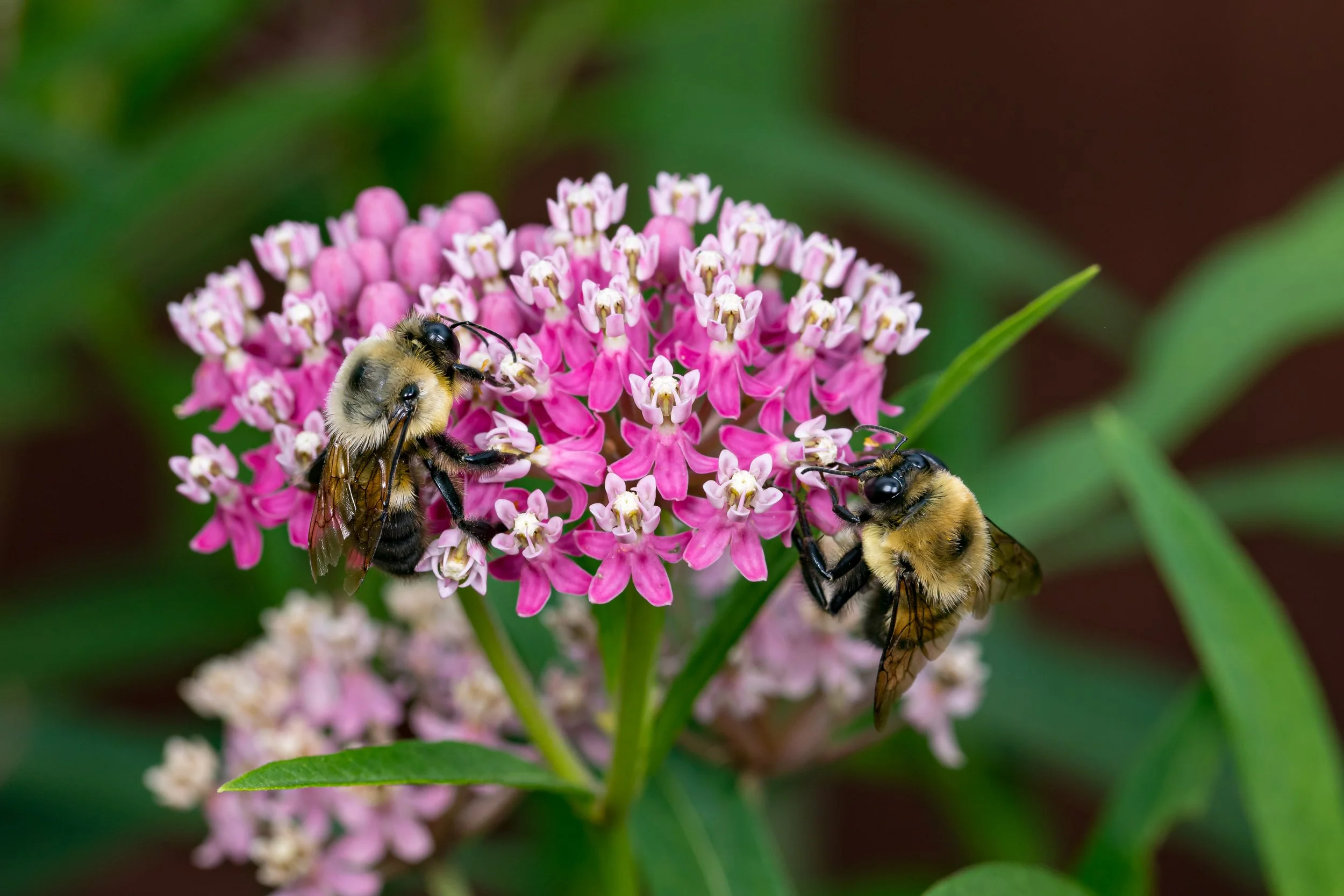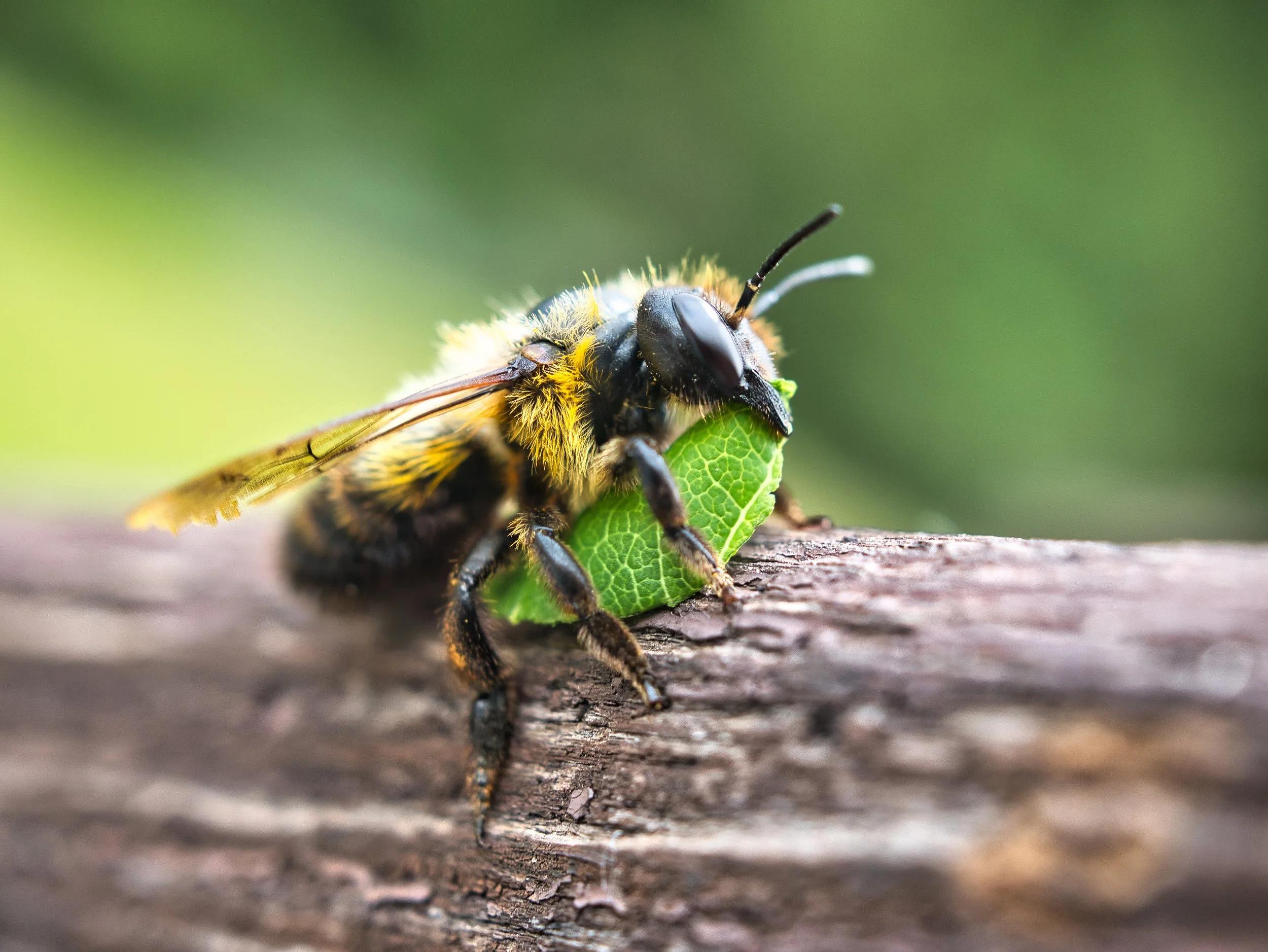Bees & Pollinators To Protect
Support Your Native Pollinators to Thrive
Pollinators are crucial for our local agriculture, food supply and diverse natural ecosystems. They Pollinate around 75-95% of our plant species, with the remaining percent left up to the elements of wind and water. As Earth Caretakers, we must ensure our pollinator's survival and protection for our present and future generations. Expanding our knowledge of Earth's pollinators can help us provide safe habitats for them to live and thrive.
Native Pollinators
Bees
Our best pollinators are the social and solitary bees, who do a magnificent job of pollinating plant species worldwide. They can be generalists visiting multiple flower varieties or specialists visiting a few different species to collect from.
Butterflies/Moths
Butterflies and moths help with pollination. When visiting a flower, they do not pick up an abundance of pollen, but where they succeed is the distance they take pollen to other flowers.
Hummingbirds
Hummingbirds have a poor sense of smell and rely upon bright colors to attract them to flowers. They are excellent at pollinating tubular plants that other pollinators do not reach.
Beatles/Flies/Wasps
Insects also support pollination: Beatles like eating the plants they visit, bringing pollen between flowers. Flies and Wasps pollinate by visitation and eating nectar while visiting a flower.
Bats/Small Animals
Bats are our nighttime pollinators. They are attracted to flowers with a strong fragrance and are high in nectar, often with a funnel or tubular shape. When eating fruits or nuts, other small animals can also transfer pollen between flowers.
Wind/Water
A perfect adaptation of some plants is their ability to be pollinated by wind and water. Moving pollen between plants by a breeze or raindrops that drip off the petals of one flower to another.
Solitary Bee Care Course
Coming Soon!
Learn more about how to #savethebees, by hosting solitary native bees yourself and how to share them with your family, friends and community.







